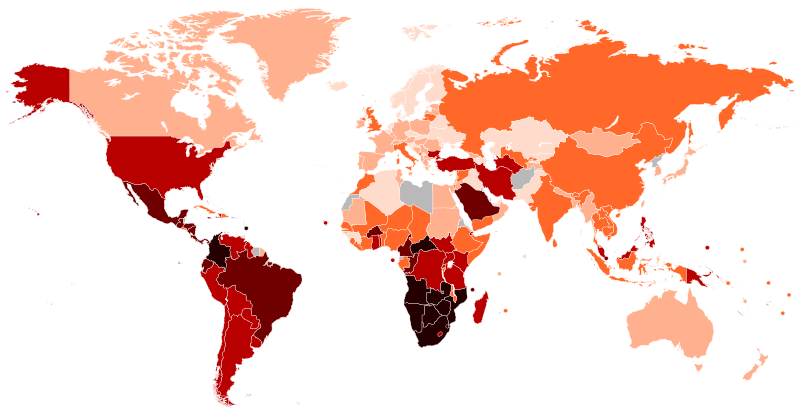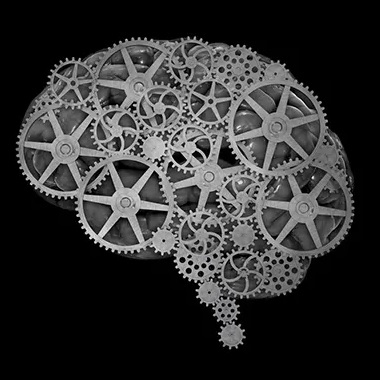A thread yesterday had a variety of people asking if the unemployment is lower because the youth are well cared for.
Please click through and read for additional context. Families are helping. Parents age and are not a long-term plan except for the most unusually wealthy.
Please remember: China is nominally communist. Functionally, they are capitalists with an usual side of excess infrastructure spending. A strong central government doesn’t make a country communist.
Their land use rules… that makes them communist-ish. But that’s a small part of a far larger picture.
Li, 21, now spends her days grocery shopping for her family in the central city of Luoyang and caring for her grandmother, who has dementia. Her parents pay her a salary of 6,000 yuan ($835) a month, which is considered a solid middle-class wage in her area.
That just sounds like a caregiver. Laura He and Candice Zhu can eat shit if they do not think that is a real job. Caring for someone with dementia is not a walk in the park.
deleted by creator
Err, what? Look at pot “legalization”. It’s still technically illegal but states don’t care. You’ll see billboards about it down the highway. Previously we had a patchwork of which states had gay marriage, even when DOMA was on the books. Then there’s the whole “sanctuary city” thing where support isn’t given to Federal officers.
The Federal government might be stronger than the founders intended but it’s not that strong compared to other countries. It’s a miracle we all drive on the same side of the road.
deleted by creator
Really weird phrasing by cnn, and strange that the Chinese youth take it upon themselves online, since they’re performing work that is very common in China, being a nanny or a housekeeper, and getting paid in room and board. They aren’t “professional children,” they are professionals who happen to be the children of their employer.
Despite the youth working at home and being paid, the article keeps using the phrase" professional children" as if they’re being paid to act like children.
Totally aside from that, what makes you think the land use laws in China make China more communist? The US has essentially the same rules, that if you don’t name a beneficiary, your assets are often allocated to the state.
As far as I understand, as long as you name a beneficiary in China, the 70-year lease on your property/ real estate can be renewed indefinitely by any directly named beneficiary.
Is that correct as far as you understand real estate laws in China?
Their land use rules… that makes them communist-ish
Wouldn’t go that far…
It’s hard to pretend China is in any way communist when they have rampant wealth inequality and the wealthiest run the government.
China is socialist. Socialism is serving as the stepping stone on the path from the previous system to full Communism. Socialism serves as an important developmental stage as antagonisms from within (counter-revolutionary forces) and without (imperialist powers) are resolved.
It’s hard to pretend China is in any way communist when they have rampant wealth inequality
First, China does have wealth inequality, but its middling in its severity.

(The key is on the linked Wikipedia page, but darker has higher income inequality).
China has a Gini index of 38.2% in 2019, putting them at 71 out of 168 in national rankings. The USA has a Gini index of 39.4% in 2020, putting them at 107 out of 168. (Lower Gini index, and lower ranking are better). The worst nation, South Africa, has a Gini index of 63.0% as of 2014; the best nation, the Faroe Islands, has a Gini index of 22.71% as of 2018[1].
Moreover, wealth inequality has been decreasing in China for about a decade[2], whereas our point of reference, the USA, has seen its inequality steadily increase over the same time span[3]. Wealth inequality is also not unexpected in a rapidly developing economy such as China: initially, as the economy grows, certain people financially benefit more than others and wealth inequality increases; over time as the economic growth stabilizes, and with a concerted effort to combat it, wealth inequality levels out and then decreases, as we see happening. Income inequality is not automatically horrible: careful attention needs to be paid to the bottom of the income rankings; comparatively, high wealth inequality is less of a problem if the bottom is not in poverty than if they are. This ties in to my next point,
the wealthiest run the government.
This is not true at all. Wealth does not buy political power or influence within the CPC (or indeed in the Chinese government overall); nor does having power or influence in the CPC enable one to amass more wealth. Those who are wealthy work with the party, as members, to further the goals of the Party to improve everyone’s lives, rather than working selfishly against the party to further their own personal goals. To paraphrase Boer[4], “The private entrepreneurs have not become a class in itself with associated class consciousness, but many have become CPC members or non-party supporters. The social and cultural assumption is that those that have benefited from wider support must contribute to the well-being of others”. That is, those who are wealthy do not get to exert outsized influence by way of being wealthy, and do not sit back and glorify their wealth, but instead work by giving back and improving the well-being of others.
The CPC is extremely developed and works for the people; large companies have branches of the party that help steer them. All enterprises (state-owned, private, or foreign) produce annual “socialist responsibility reports” which guarantee that their actions are not putting profit before the goals of the society as a whole: poverty alleviation, environmental improvement, education, and more.
Socialism (and indeed communism) is a structural form that dictates a government’s (and economy’s) purpose and its relation to society and its members. The goal of a socialist government is to improve the material and cultural lives of its people. To a Westerner, it seems foreign or fantastical that a country could genuinely operate with this goal in mind, and so people would rather say “it’s not real socialism”, or say that “because it has some problems, it’s all bad”, than to acknowledge that no system is perfect and as long as the system works to fix its issues and help its people, it is on the right track.
The OP has a non-nuanced and seemingly uninformed opinion on China as well,
Please remember: China is nominally communist. Functionally, they are capitalists with an usual side of excess infrastructure spending. A strong central government doesn’t make a country communist.
They are not capitalist. Infrastructure spending is also not what determines whether they are capitalist, socialist, or something else. Moreover, nobody is arguing that a strong central government determines whether they are communist or not. To say that China is capitalist is a category error and falls into the trap that dictates that using aspects of a market economy automatically negates socialism and makes a system capitalist. I’ve written a bit more in depth on it elsewhere, but plenty of sources dive in to why China is indeed socialist and why it is faulty to see them as capitalist. Chapter 5 (“China’s Socialist Market Economy and Planned Economy”) from Richard Boer’s book I’ve cited above serves as a good overview of why it is a category error to call China capitalist.
https://en.wikipedia.org/wiki/List_of_countries_by_income_equality ↩︎
https://data.worldbank.org/indicator/SI.POV.GINI?end=2019&locations=CN&start=1990&view=chart ↩︎
https://data.worldbank.org/indicator/SI.POV.GINI?end=2019&locations=US&start=1990&view=chart ↩︎
Socialism with Chinese Characteristics. Boer, Roland. ↩︎
Your wiki link for inequality has China ranked 98, not 71, putting it much closer to the USA at 107. It’s fair to say both countries have “rampant income inequality” right now. Also notably, the Gini index has a very long list of nominally “capitalist” countries ahead of China, which meet your criteria for a sustained fight against inequality and taking care of the poor.
The CPC is extremely developed and works for the people; large companies have branches of the party that help steer them. All enterprises (state-owned, private, or foreign) produce annual “socialist responsibility reports” which guarantee that their actions are not putting profit before the goals of the society as a whole: poverty alleviation, environmental improvement, education, and more.
Forgive me as you’ve written quite a bit here but this seems to be the only concrete policy to discuss vis-a-vis capitalist vs communist systems. The rest is subjective language about “working for the people”. Every politician gets up on stage and talks about how they’re fighting hard to give people better lives. No one really gives those statements any credit.
Your wiki link for inequality has China ranked 98, not 71, putting it much closer to the USA at 107.
I’m not sure if you understand how a ranked list works: you can invert the ranking order and the relative difference is identical. Whether you say China is 98 and USA 107 (a difference of 9) or you say China is 71 and the USA is 62 (a difference of 9), the relative difference is the same (it’s 9). The only difference is how you interpret which is better, which I didn’t do. My point was they’re similar and middling in the ranking.
Also notably, the Gini index has a very long list of nominally “capitalist” countries ahead of China, which meet your criteria for a sustained fight against inequality and taking care of the poor.
This is irrelevant to the point I was making. My point wasn’t that China is uniquely positioned with low income inequality. My point was twofold: it is middling in its rankings (i.e., not the most unequal), and it’s decreasing. The fact that it’s steadily decreasing is directly related to the point I made about the CPC truly working for the people to solve the real problems they’re facing: they identified a problem, identified some causal factors, discussed the importance of fixing it, made plans of how to fix it, are implementing those plans, and make reports on the progress of those plans. You’ll also notice that those capitalist countries which have less income inequality than China have more government intervention in the market (i.e., tempering the “free market”) in part because the issue doesn’t address itself in a capitalist system, and intervention has to be taken to address the problem. This is what China is doing, too: their income inequality problem isn’t magically going away on its own free will, it is going away because of government intervention in the economy.
Forgive me as you’ve written quite a bit here but this seems to be the only concrete policy to discuss vis-a-vis capitalist vs communist systems. The rest is subjective language about “working for the people”. Every politician gets up on stage and talks about how they’re fighting hard to give people better lives. No one really gives those statements any credit.
The difference is that Western politicians rely on selling a promise and not delivering. Yes, they get up on stage and talk, and then do nothing. With the CPC, they actually show results. They make plans and publish them, they implement them, and they publish update reports that show whether or not they stuck to what they said they would do. This is not another situation with empty promises; if it was, they either wouldn’t publish update reports or the update reports would show that they aren’t doing what they said they would. You’re confusing form and function: both CPC and Western politicians make promises, but the Western politicians do not deliver and the CPC does. There’s a reason CPC support in China is so high, and it’s because the party truly works for and benefits the people; if it were empty promises that never benefited the people, they wouldn’t have so much support for the party.
(Edit: I was wrong in the direction I had sorted when I wrote this comment initially. I have removed the now irrelevant part. My point still stands: the two countries I compared are similar, and China is middling in it’s ranking; inverting the sort order doesn’t make the countries less similar, and since they’re middling, inverting the sort order means they’re still middling. I didn’t make a claim that one was better than the other).
To get the 98 rather than 71 figure, you would sort by Gini index descending.
You literally have it backwards:
Sort Gini index by ascending: China is #98 at 38.2, US is #107 at 39.4
Sort Gini index by descending: US is #62 at 39.4 and China is #71 at 38.2.
It seems you’re right. I will edit that part of my comment. But I will point out: I wasn’t making a statement that one was worse than the other. I made the point that they’re similar in ranking and like I said, even if you reverse ranking order they’re still just as similar. And, since they were middling in their ranking like I originally said, if you invert the sorting, they’re still middling.
I love how you can give a detailed explanation, and libs just freak out and downvote because it doesn’t fit with their narrative.
What’s the point of downvoting a reply that’s exactly on topic and fully sourced? Is it the redditors again?
They sourced gini information three times, and then cited what dollars-to-donuts is a propaganda work from someone that agrees with them. It’s on topic, but it’s also a lot of words to prop up a weak point.
You could say people should respond instead of downvote, but they also say to pick who you argue with carefully, because most arguments are a waste of time.
Fully sourced means my statements were sourced, not that it was dripping in sources.
Also, the book I cited is not propaganda. Please don’t resort to calling everything that posits an alternate view propaganda.
From the Springer page on the book,
Roland Boer is a professor in the School of Marxism Studies at Dalian University of Technology, Dalian, China.
So he has a degree in and is a professor in the exact subject he’s talking about, from a respected University:
Dalian University of Technology (DUT) […] is a public research university located in Dalian, Liaoning, China, with an additional campus in Panjin, Liaoning. […] Formerly called the Dalian Institute of Technology, DUT is renowned as one of the Big Four Institutes of Technology in China. […] As of 2022, DUT was listed as one of the top 400 global universities in several major international universities’ rankings
Moreover, it’s not some random publisher or some guy’s PDF on the internet. It’s published by Springer which, if you have done any academic reading in almost any field, you will know that Springer content is high-quality and trustworthy. In fact, at a lot of the university libraries I’ve been in, some subjects (maths, especially) are probably three-quarters Springer publications,
Springer Science+Business Media, commonly known as Springer, is a German multinational publishing company of books, e-books and peer-reviewed journals in science, humanities, technical and medical (STM) publishing.
Because people don’t like to read the opposite of what the West propaganda shows, it creates a cognitive dissonance with reality and their beliefs, and before questioning their beliefs, they choose to question reality.
It looks like there is two different things happening.
First is that the one child policy is causing problems with several grandparents being supported by one grandchild. In this case, it seems like the grandparents are paying a salary to their grandkid to support them in elderly care. It may not be a lot of money, but it seems to be enough for the adult grandchildren to live for what is effectively a part time job.
Second is that the economy going through issues, and grandparents are acting as unemployment insurance.
brb moving to China
You need to find Chinese parents first.
Or parents. Period.
Doesn’t Andrew “UBI” Yang literally work for CNN? Really weird framing for something he would at least pretend to love. People are being paid to run errands for their family, a tale as old as time. It’s still labour, but now focused at helping their families and community rather than getting some higher education formal job. Europe should try this out with their army of ageing sexagenarians. Kids would kill for 800 EUR a month to actually live for once.
This article isn’t written by Yang…?
Wanna point out where I said it was? I’m saying that the presidential candidate that currently works at CNN advocated for something that would have an extremely similar impact, and yet it’s being framed as if kids are being paid to wear diapers or some shit. Either CNN fires “thousand dollars month” man and acknowledges they actually hate errand kids and community-focused jobs, or they portray it fairly. To do otherwise is hypocritical, but what else would anybody expect from CNN on China?
Does your employer ask you for comments before they allow your other fellow employees to publish work?
I didn’t think so. Yang doesn’t own CNN. He just works there
Then they should have done similarly critical coverage of Yang’s plans. Instead they hired him as political commentator so they at least think that his policies are not laughable (or more likely that he never actually stood for them in the first place). News outlets should be consistent in their coverage.
Her parents pay her a salary of 6,000 yuan ($835) a month, which is considered a solid middle-class wage in her area.
So…they are unemployed?
Why would you want for young people to work? Is your idea for a utopia to have 15 year olds working at a McDonalds for minimum wage?
If the youth can focus on studying and improving themselves that is what they should do. Maybe it is because of the strong US “work ethics” but where I live unless you are under extreme poverty you focus on studying until you are 25 at least. We have free healthcare and education, so we have it much easier than people in the US, though.
That certainly sounds a lot better than the prospects young people living in US or Canada have. Also, why would you start with 16 years of age? I realize child labour has been noramlized in US, but in civilized countries 16 year olds go to school instead of having to work.
Finally, this seems pretty in line with Europe https://www.statista.com/statistics/613670/youth-unemployment-rates-in-europe/
So, basically this is a lazy propaganda story as can be expected from CNN when covering China.
The latest China Bad story is that parents are looking after their children. Really scraping the barrel here.
“Excess infrastructure spending” I’ve spotted the republican.
It sounds strange, but it is something that the Chinese national government has made policy to rein in. This includes a national ban on new skyscrapers and subway lines. If the national government has to ban different types of infrastructure to be built, it can be a sign of excessive spending.
As far as I know, the ban on skyscrapers is due to safety concerns and a sense of identity which make sense, vertical urban planning is good but the best middle point is buildings that are neither too small (because you are not taking advantage of the vertical space) nor too tall. This is not much different from US zoning laws, which work to appease to the car industry lobbyists.
Regarding subway lines, I can’t find any information about that, just that they banned drinking in such places.









